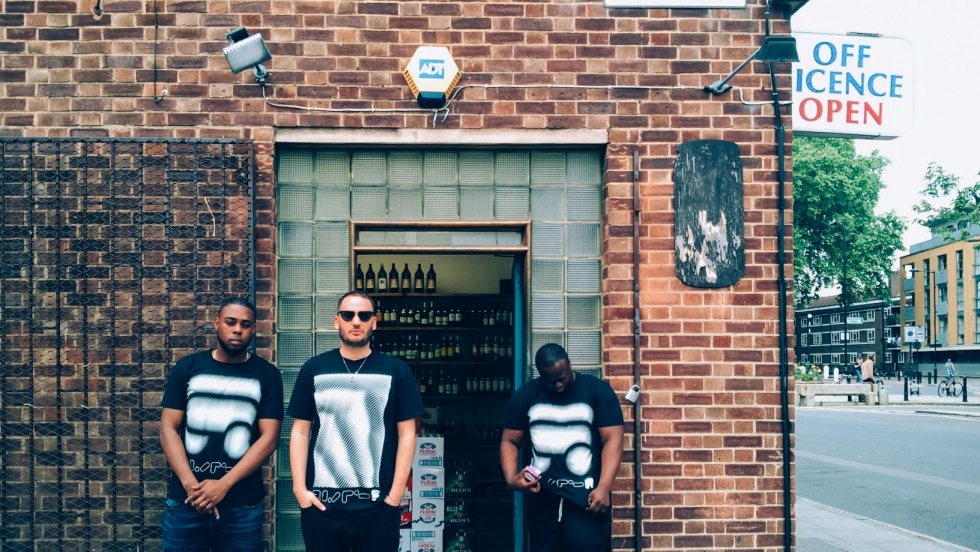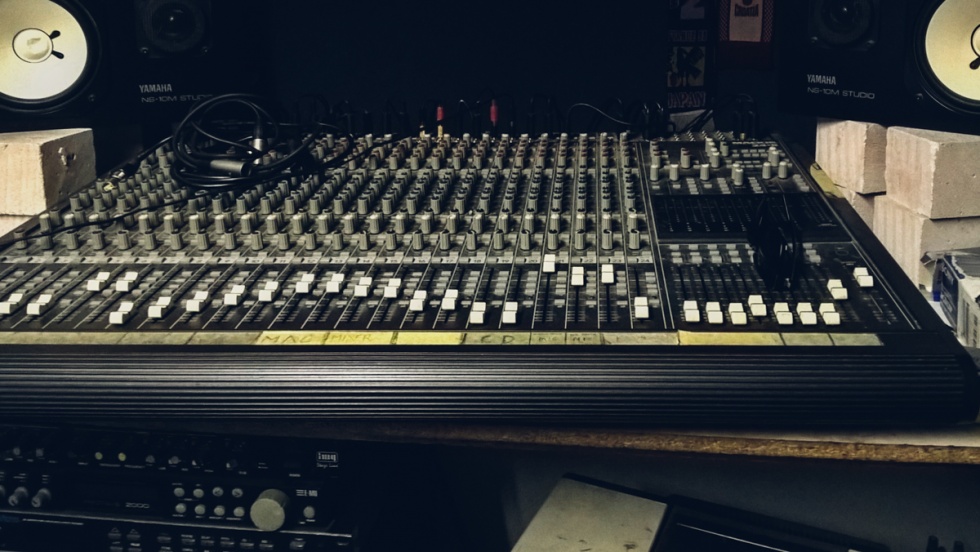Running a label – much like maintaining a four-wheel drive – can be quite an arduous task. There are a number of constantly moving parts, (usually) more than one person to please and endless amounts of behind-the-scenes admin that nobody will see while they’re enjoying the ride.
Despite all of that, the independent sector is looking healthy. Not since the late 1970s – which spawned 4AD, Mute and Rough Trade among others – has there been such a vast selection. Far from scaring away the wannabe label head, it seems to have encouraged them.
Producing a 12″ single isn’t as difficult as it was pre-internet. You can get a couple of tracks mastered and several hundred vinyl copies pressed up without teetering over £1000. Then there’s new startups like Qrates, who specialise in pressing smaller quantities of records so that those with stretched pockets can prosper. Even getting your music out to those that want it has become less of a chore thanks to Soundcloud, Bandcamp and so on. And in terms of getting the music heard, and getting it to market, we’re living in a golden age: you can reach customers without having to rely on traditional distribution networks, and you don’t need radioplay or elaborate promo to raise awareness.
As far as indie imprints go, Formula Records are a favourite. Headed up by the multi-talented busybodies DJ Champion, Louis Cook and occasional dig-ins from Terror Danjah, their love lies in producing dancefloor riddims seasoned with grit. They’re by no means the biggest label around (yet), but their slow-cooked, meticulous approach to releasing records has won them many admirers since they started up in mid-2011.
Most days, Champion can be found quietly working away in an array of different studio spaces near his home in Dalston. Today the studio space happens to be nestled under the floorboards of an unsuspecting Hoxton corner shop, the stomping ground of the legendary genre-twiddlers, Shut Up & Dance. During the mid to late 80s, the pair were highly influential in plotting the blueprint and sonic ideas for jungle; mixing reggae and hip-hop together to stumble across that eureka moment. It’s an apt temporary home for a label also trying to transcend barriers of straight up grime, bassline, UK Funky and the leylands in between.
The Formula Records story begins a little before this basement beatlab though. Champion – real name Reiss Hanson – met Terror Danjah back in 2010 after coming out of an unsuccessful management deal. Reiss had been a grime head from his early days, yet too young to penetrate that particular scene. UK Funky’s arrival in the mid-2000s was perfect, yet perhaps underwhelming. “Me and DJ Pioneer were rolling together, this after UK Funky was dying and moving into house,” he adds. “Pioneer said I should take Terror Danjah’s number and see what he has to say. The first thing he said was ‘rah, I’ve been waiting for you. I’m calling Kode9 and we’re going to put “Motherboard” on Hyperdub’.”
Although the Hyperdub lynchpin didn’t opt in in the end, “Motherboard” would eventually find a home on Terror’s very own Hardrive imprint. As an ardent anti-Funky head, it was an early indicator of Champion’s wider appeal to grime, bassline, and junglist fiends alike.
At a similar time, Champion was readying Formula Records 001. More than anything, the imprint was just a sandbox opportunity at this stage – a place for the producer to unleash his own riddims without answering to anybody apart from himself. “Lighter” was a heavy dosage of UK Funky, tippled with his early grime influences yet contagiously danceable. Test driving your releases in the club is a tried and tested method of really checking how good a tune is. If the crowd goes wild, you’re onto a winner. It works even for someone with the smallest of bookings.
“It was a weird one because I didn’t really know how that one would go. I’d made “Lighter” in 2009 and gave it to DJs on New Years 2010. So to me, by the time 2011 had come around – because I remember the heyday, the parties and what the people were like – them times, I thought I couldn’t do any wrong by putting that out.
“Lil Silva said that he was playing XOYO with Night Slugs. He played “Lighter” and the place went absolutely mad. This was all alien to me because I was used to playing in a bar in Birmingham to people in suits and dresses.” A step in the right direction, no doubt.
“Louis represented the raver. It makes perfect sense to have someone that understands the culture.”
Fast forward a couple months and Formula Records was three releases in. Two more DJ Champion triple-belters had landed, but the struggles of running a label singlehandedly were starting to take their toll on the producer’s creativity. Louis had been a steady stalwart along Dalston’s promoter alley for a number of years prior to booking Champion for his night, Special Request. More than that, he represented something else that the label didn’t have. “Louis represented the raver. It makes perfect sense to have someone that understands the culture.” Having co-run Hyponik – an online music portal and promotions company – for 5 years (it has been running for 15 years in total), and written for various publications from Notion Magazine to Vice, he was the perfect choice.
With this newfound double padding, Formula Records really began to motor. With Louis handling the day-to-day tasks of distribution, marketing and the overall aesthetic, Champion could hone in on the production. The perfect matrimony. Follow up tasters from Hannah Wants and Notion were distinctive joints, injecting thick, grime-inspired basslines into shuffling snare patterns and snappy drum sounds. A welcoming pattern was beginning to emerge.
The Formula ethos is heavily based on having a whole musical package. Louis’ childhood was spent salivating over the artwork over D&B labels like Moving Shadow. “At the end of the day, it’s the perfect package that I’m always on the look out for. Something that not only catches the eye, but is able to feel like a real piece of art. More than anything that’s the aim because people have so much choice out there for music.”
“We’re currently living in the time of the niche – a world so inundated with music that people need to have some kind of compass.”
The killer question within all this is obvious then: how do you go about successfully running a label in 2015? Well, according to Louis, the key is simple. “We’re currently living in the time of the niche – a world so inundated with music that people need to have some kind of compass. Fair enough, they can go on Soundcloud and find out about the latest release, but even that is a cramped platform.
We put in the work so that our label appeals to the right person. We feel like we’ve finally hit our form now as well.”
That form took physical shape once again in April. The Formula Records f=BASS² compilation was the pair’s first – tracks from promising heads like Flava D and Killjoy rubbed clavicles with the experienced Zed Bias in all encompassing body of intent.
More importantly the character of the records, each standing out in their own rights but drenched in the Formula DNA. “I don’t really overthink it. I just think about the things that I love visually and used to love, then I just connect with the people I know can make it happen. With design, we don’t really give people free rein. The brief is almost like, doing what we want to do. That’s the way you keep things tight.”
At just a few years old, the label is definitely crawling into maturity; it’s a slow ascent yet, most definitely steady. Formula Records are a gleaming example of label success. And in a music world where things seem to move way too fast, that fact is a welcome thought.
Originally published in The Five To Nine, a news paper, produced by Boiler Room and Microsoft Lumia. All shot on Microsoft Lumia

